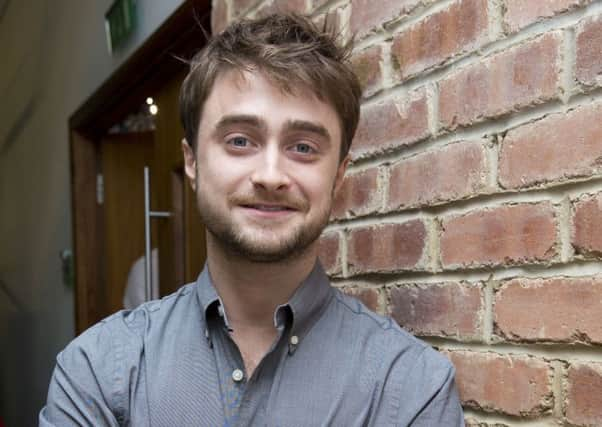Who Do You Think You Are? is social history and fascinating stories about people hidden from history - Anthony Clavane


So I almost choked on my muesli when I read Sunday Times critic Camilla Long’s snobbish put-down of the “small bearded child” and his “sentimental voyage of spectacular nothingness”. Or, as most viewers of the genealogy documentary series will have experienced it, Radcliffe’s moving quest to find out about his family history.
Advertisement
Hide AdAdvertisement
Hide AdFor those of you who have yet to discover the charms of the BBC’s compelling, long-running show, now in its 16th series, celebrities like Radcliffe, Danny Dyer, Kate Winslet, Ruby Wax and Paul Merton attempt to trace their roots, with the help of an assorted bunch of relatives and experts, in the process delving into the innermost secrets of their ancestors’ lives.


Or, as Long sneered, “it’s about seeing how faintingly, grovelingly polite celebrities can be to a long line of nobodies”.
These “nobodies” included, in the Radcliffe episode, two of my favourite historians: Alan Dein and Rachel Lichtenstein. They have written books, and presented programmes, about topics as various as Cockney Jewish jazz, the Thames estuary and the faces in football crowds. They have inspired me to write books, plays and songs about my own family, community and religious history, mainly set in Yorkshire.
Advertisement
Hide AdAdvertisement
Hide AdWhich is why I take great exception to Long’s assertion that “this show isn’t about history”. Oh yes it is. It’s just not the kings-and-queens, one-damn-thing-after-another, top-down history Sunday Times critics, championed by former Education Secretary Michael Gove, are always banging on about.
Actually, I’ve just remembered that the most famous Who Do You Think You Are? of all revealed to a shocked nation that Dyer was a direct descendant of both King Edward III and King Henry VIII’s right hand man Thomas Cromwell. Still, the Hackney geezer’s episode was the exception that proves the rule. The rule being that it’s history from below.
Back in the day, in one of my many previous incarnations, I taught the subject at secondary school level. I was useless at controlling difficult classes, but it was noticeable how interested the students became when they investigated their family trees.
Of course, the hook of the programme is that it’s a celebrity who is tracing his or her family tree. But – Dyer apart – the ancestors they discover are rarely members of the ruling class.
Advertisement
Hide AdAdvertisement
Hide AdIndeed, the last show, featuring Naomie Harris – best known for playing Miss Moneypenny in the most recent Bond films – brought to light some harrowing stories about the victims of that class: black West Indians who, in the 19th century, were exploited by British imperialists.
Harris was brought up by her mother who, aged five, arrived in Britain from Jamaica during the Windrush era. She discovered that one of her mum’s ancestors was an “indentured servant” – a slave in all but name – on a British plantation in the West Indies.
Last year’s Runnymede Trust study disclosed that only four per cent of pupils taking GCSE history took the Migration to Britain option. This is a scary statistic given that more than one in four state schoolchildren are from black and minority ethnic backgrounds.
Radcliffe’s episode also revealed a hidden story about migration, one which had tragic consequences for his great-grandfather, Samuel Gershon. I won’t betray the twist in the tale – it’s still available on iPlayer, so no spoilers – but it highlighted the anti-semitism faced by Jewish families in the 1930s, when Oswald Mosley’s blackshirts were on the rise in London.
Advertisement
Hide AdAdvertisement
Hide AdIt was the kind of lip-wobbling, cheek-dampening, hanky-blowing moment that has attracted derision from critics, like Long, who dismiss Who Do You Think You Are? as nothing more than a celebrity blub-fest.
It’s much more than that. It’s social history; fascinating stories about people who have been hidden from history – the marginalised, left behind, invisible, forgotten men and women who have, often unnoticed, shaped our national story.